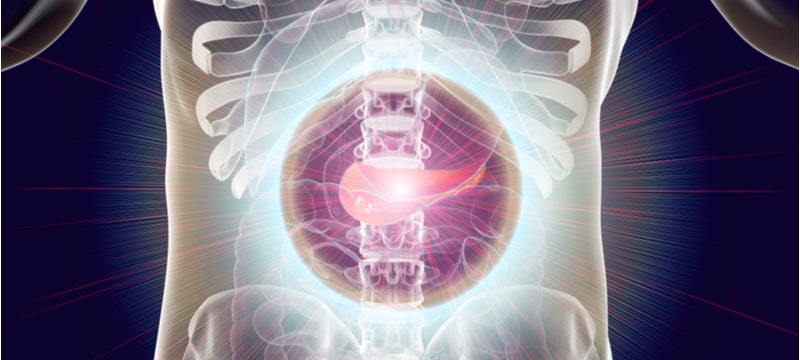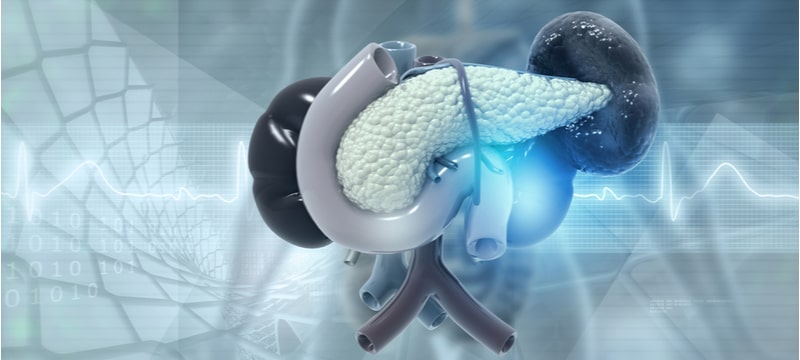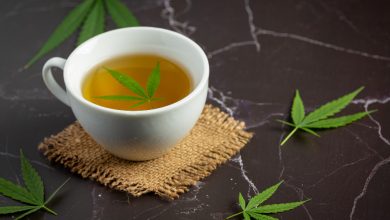
While very few people know what pancreatitis is, cases have been rising, with more people than ever before suffering from the condition. It is estimated that up to 45 in every 100,000 people suffer from acute pancreatitis each year, while 3 in every 100,000 people are affected by chronic pancreatitis. And while these numbers may not seem like much, they are increasing rapidly. If you’re someone that suffers from pancreatitis, you’ve probably looked at several treatment options. However, have you ever considered using CBD for pancreatitis? It might just be the right option for you.
Table of Contents
The causes of pancreatitis
The pancreas is a gland found in the abdomen behind the stomach. The primary function of the pancreas is to make insulin and digestive juices/enzymes to help in the process of digestion.
Pancreatitis occurs when these enzymes damage the pancreas, causing inflammation. Simply put, pancreatitis is inflammation of the pancreas. There are two forms of pancreatitis, acute pancreatitis and chronic pancreatitis. Let’s take a deeper look at both.
Acute pancreatitis
Acute pancreatitis can be triggered by gallstones, which are small stones that form in your bladder, getting stuck in the pancreatic ducts or sudden inflammation of the pancreas. However, sometimes the cause can be unknown. Typically, acute pancreatitis can be caused by a number of things, some more likely than others, namely:
- Alcohol
- Side effects of certain medicines
- Damage to the pancreas
- Autoimmune disease (autoimmune pancreatitis)
- Viruses
This form of pancreatitis appears suddenly, but is a short-term condition. It usually lasts for only a few days.
Chronic pancreatitis
Chronic pancreatitis is a severe form of pancreatitis. It is when the pancreas is permanently damaged and no longer functions properly due to inflammation. Chronic pancreatitis is a long-term condition most commonly brought on by heavy drinking. While most common in men between the ages of 30 and 40 who drink excessively, it can affect people of any age or gender. With chronic pancreatitis, the pancreas does not heal. Instead, it gets worse with time. Besides alcohol, chronic pancreatitis can be caused by a number of things, such as:
- Autoimmune conditions
- Damage to the pancreas
- Genetics
- Radiotherapy to the abdomen
- Gallstones
- Smoking
However, in some cases, there is no identifiable cause. It is then known as idiopathic chronic pancreatitis.
Symptoms of pancreatitis
While acute and chronic pancreatitis have similar symptoms, here we will look at them separately.
Symptoms of acute pancreatitis
The main symptom of acute pancreatitis is sudden severe pain in the centre of your stomach. However, there are many others, such as:
- Rapid heartbeat (tachycardia)
- Fever
- Indigestion
- Vomiting
- Diarrhoea
- Jaundice
- Swollen stomach
Symptoms of acute pancreatitis caused by gallstones usually appear after eating a big meal, while the symptoms of pancreatitis caused by alcohol typically occur a few hours after heavy drinking.
Symptoms of chronic pancreatitis
The most common symptom of chronic pancreatitis is usually a severe burning/shooting pain in the abdomen, which lasts for days and seemingly happens with no warning. However, several other symptoms could be present, for example:
- Abdominal pain
- Weight loss
- Nausea
- Vomiting
- Jaundice
- Fatigue
- Extreme thirst
- The need to urinate frequently
The longer you have chronic pancreatitis, the more severe your symptoms get. You can even develop diabetes if your pancreas is so damaged it can no longer produce insulin. About ⅓ of people with chronic pancreatitis have diabetes.
Complications of pancreatitis
Pancreatitis can lead to serious complications, especially in people that have severe pancreatitis.
Complications of acute pancreatitis include:
- Narrowing pancreatic duct
- Leaking pancreatic duct
- Dehydration
- Organ failure
- Bleeding
- Infection
- Death
Complications of chronic pancreatitis include:
- Diabetes
- Osteoporosis
- Narrowing pancreatic duct
- Leaking pancreatic duct
- Chronic abdominal pain
- Maldigestion
- Malnutrition
- Organ failure
- Cancer
- Death
While the outlook of pancreatitis may seem bleak, it is not all doom and gloom. There are treatment options available to you.
Treatment for pancreatitis
Depending on the form of pancreatitis, there are various ways to deal with the condition. Both acute and chronic pancreatitis can be treated effectively.
Treating acute pancreatitis
Acute pancreatitis is the easiest to treat. Most people with the condition are admitted to the hospital until the inflammation of the pancreas subsides. At the hospital, they will receive intravenous fluids, strong pain relief and more to support their body during the episode. If the case is severe, they may need to remain under observation in intensive care or even undergo surgery. Doctors may even prescribe medications to treat certain causes of the attack, such as antibiotics for an infection.
Treating chronic pancreatitis
Treating chronic pancreatitis is much trickier than treating acute pancreatitis, as there is no way to reverse the damage done to the pancreas. Luckily, there are ways to treat the symptoms and make living with the condition that much easier. Doctors will usually recommend changes to diet and lifestyle, such as no more drinking or smoking, which will help people with chronic pancreatitis experience less pain and live longer. They will probably also advise sufferers to take paracetamol for pain, or, in some cases, prescribe them more potent painkillers. In extremely severe cases, doctors may operate and remove the pancreas altogether.
While the above methods can effectively treat pancreatitis or help with its symptoms, many people seek alternative options for help, such as cannabidiol (CBD). But is CBD for pancreatitis a thing?
CBD for pancreatitis: Does CBD oil help with pancreatitis?
While research is still in its infancy, studies have shown evidence that CBD could help treat the symptoms of pancreatitis, mainly inflammation, pain, and nausea.
CBD is known for having anti-inflammatory properties, and a study on mice with acute pancreatitis showed that CBD could help relieve inflammation caused by the condition. A more recent study also found that CBD reduced inflammation in the pancreas of obese and diabetic mice.
Besides having anti-inflammatory properties, CBD is also known for its analgesic properties. Yet another study on mice revealed that topical CBD provided pain relief for mice suffering from arthritis and reduced the inflammation they were experiencing. It was noted that they showed no side effects from the CBD.
Furthermore, studies have shown that CBD may be an effective way to overcome nausea caused by pancreatitis, and continuous administration of CBD effectively reduces vomiting.
CBD is generally safe to take and well-tolerated by users. It is a healthier alternative to standard medication and painkillers that may contain dangerous and addictive ingredients with serious side effects.
CBD has mild side effects when taken in large amounts, such as dizziness, dry mouth, and a change in appetite. There is also no evidence that it is addictive, so the chance of substance abuse is extremely low.
CBD oil for pancreatitis in cats and dogs
Unfortunately, our furry friends can also get acute or chronic pancreatitis. In cats and dogs, it is usually caused by cystic fibrosis, gallstones, or infection. Severity can differ depending on the cause. Your pet can have anything from mild symptoms for a few days to a life-threatening situation. Luckily, they can be cured with continuous treatment, without needing to go for surgery.
CBD for pancreatitis in cats and dogs should only be used to help with symptoms such as nausea and pain. It is not a cure for pancreatitis and should not be used as such. Always consult your vet before giving your pet any medication or supplements to ensure it won’t affect their health. Also, while you can give your pet human CBD oil, it is not advisable, as it may contain harmful ingredients. Rather buy CBD that is specifically manufactured for cats and dogs.
CBD for pancreatitis: Key takeaways
While CBD may seem like a viable alternative to regular medication, there is simply not enough research to make any definitive claims, especially not on humans. Almost all studies done on CBD use animals as subjects, which means we cannot be entirely sure of the effect it has on humans. While evidence from current studies is promising, and anecdotal evidence lends credence, more studies need to be done.
Furthermore, never start a supplement such as CBD before consulting your doctor. They will know whether it is the right decision for you, or whether it will interact with any medication you may be on or health conditions you may have. When it comes to something as serious as pancreatitis, never try to treat yourself. Instead, make sure you get proper medical help.
You may also like to read: CBD Oil for Arthritis – Can it help with easing the pain?






